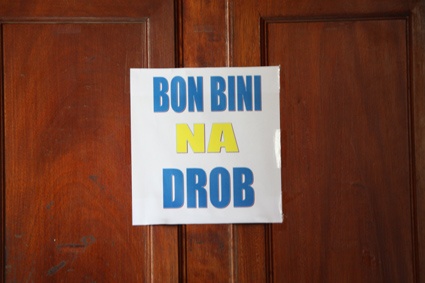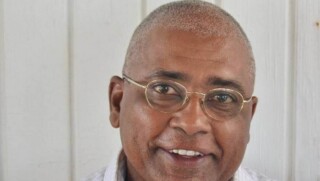Knops Demands Drastic Change in Course at DROB

The State Secretary is quite worried about the findings of the Prosecutor’s Office.
By René Zwart
The Hague – “We need a drastic change of course,” says State Secretary Raymond Knops of the Interior and Kingdom Relations in response to the report of the National Criminal Investigation Department on the administrative abuses observed on Bonaire at the Department of Spatial Development and Management (DROB).
“The report of the National Criminal Investigation Department (Rijksrecherche) outlines a practice that has existed for many years when it comes to the issue of land and leasehold rights on Bonaire. The National Criminal Investigation Department conducted independent research and the conclusions are clear. The lack of local regulations creates a situation that can lead to undermining and has unwanted social and economic effects.” Knops points out that regulations in the field of lot allocation and permits are a local responsibility. “Government and Island Council will have to work energetically on a good spatial planning policy and reliable implementation, including supervision and enforcement.”
Knops has already indicated during his visit in January of this year that he deems good governance of great importance and says he continues to emphasize the importance of improved administrative procedure and integrity. Meeting the requirements of Good governance is a condition for eligibility for the 30 million euros that is reserved in the coalition agreement (the regional envelope) for projects in the Caribbean Netherlands. That money is still unused on the shelf for the time being.
Member of Parliament André Bosman (VVD) calls the report of the National Criminal Investigation Department an alarm signal. “The findings are worrisome, but at the same time not surprising. There have been many reports about misconduct for a long time. These are not limited to this service that the research has limited itself to. I hear that it also occurs at, for example, the LVV. What I find very worrying is that it is a very old problem where nothing has been taken against. Why has it never been done? Bosman thinks that the Executive Council and the Island Council are the first to respond adequately to the report. “They have to take their responsibility. Only when they do not implement desired measures, will there be a role for The Hague. It is not yet reached the situation as was the case in St. Eustatius, so I do trust that they themselves realize that things have to be sorted out very quickly. ”












